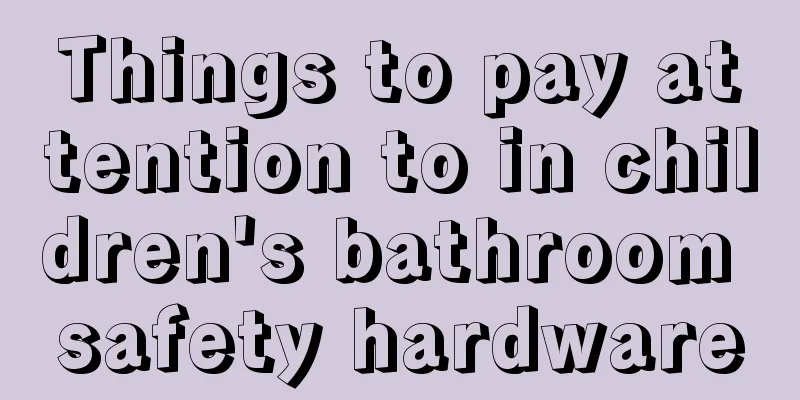Psychogenic urinary frequency in children

|
Not only adults will encounter the phenomenon of frequent urination, but many children are also victims of frequent urination. Children's psychogenic frequent urination is a typical type, also known as neurogenic frequent urination. It is generally an independent disease. At the same time, be careful about the possibility of secondary urinary tract infection. As parents, we need to fully understand the situation of children's psychogenic frequent urination so that we can better treat it. Neurogenic urinary frequency refers to non-infectious frequent urination and urgency. It is an independent disease in pediatrics. The affected children are generally between 2 and 11 years old, and most of them occur in preschool children. The symptoms are frequent urination, every 2 to 10 minutes, and urgency, with the inability to hold back once the urge to urinate is present. Younger children often wet their pants because of this, which may lead to urinary tract infection or genital eczema. Causes Children with neurogenic urinary frequency do not have organic lesions. The main causes of this disease are: ① The cerebral cortex of children is not yet fully developed, and the inhibitory function of the primary urination center of the spinal cord is poor, which is easily affected by adverse external stimuli and has disorders; ② There are some factors in children's lives that cause mental tension and adverse stimulation to their mental state. For example, changes in living environment, children's lack of psychological preparation for entering kindergarten or school, being fostered by others, sudden separation of parents, death of relatives, fear of exams or fear of certain animals, etc. These may make children nervous and anxious, causing the function of inhibiting urination to be impaired, resulting in frequent and urgent urination. treat 1. Eliminate the influence of disease. 2. Parents should guide their children correctly and patiently to eliminate their worries; they should actively encourage their children to eliminate their fear and worry, and keep a relaxed and happy mood to face the disease. 3. If necessary, use drug treatment under the guidance of a doctor; drugs such as atropine, scopolamine, 654-2, oryzanol, etc. can help regulate nerves to relax the detrusor muscle of the bladder, contract the sphincter, increase the bladder's urine storage capacity, and reduce the frequency of urination. |
<<: What department should I go to for frequent urination in children?
>>: Why does my child suddenly urinate frequently?
Recommend
Three-year-old baby vomits only with no other symptoms
When a three-year-old baby is young, his body is ...
What to do if your baby has keratitis
The cornea is a very important part of the human ...
Is it good for children to take a bath when they catch a cold in autumn?
Is it good for children to take a bath if they ha...
Baby has diarrhea and anal ulcer
If the baby has diarrhea and anal skin is broken,...
How to help children improve their memory
When children are exposed to things in the outsid...
What are the functions of vitamin D for children?
Nowadays, everyone knows that vitamin D can impro...
What to do if your baby has a fever and difficulty breathing
It is winter and the weather is quite cold. Many ...
What to do if your baby has a nosebleed in the middle of the night
A baby is the hope of a family and the apple of t...
Symptoms of childhood variant asthma
Many parents are very concerned about their child...
What to do if your child always loses temper?
It is inevitable that children will lose their te...
How to treat children’s sore throat with pus?
Many children often suffer from sore throats. Sor...
What are the harms of hormone drugs to babies
There are many drugs on the market that are hormo...
How to care for baby's facial eczema
When summer comes, many babies will easily develo...
Treatment for 3-year-old language delay
Children's physical development mainly includ...
What should I do if my baby who is less than one month old has diarrhea?
Babies who are not even one month old are very pr...









